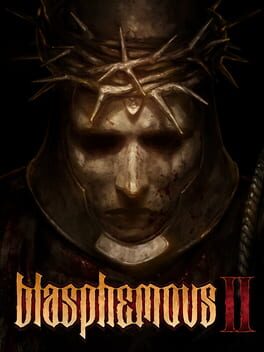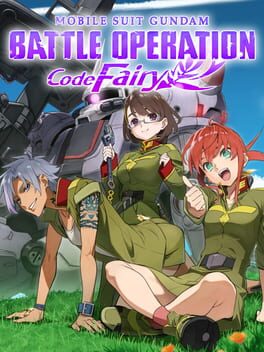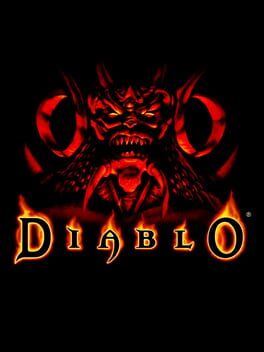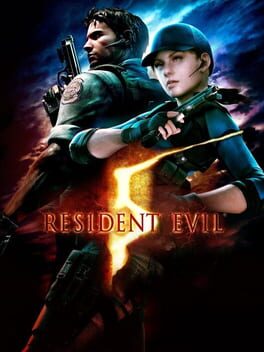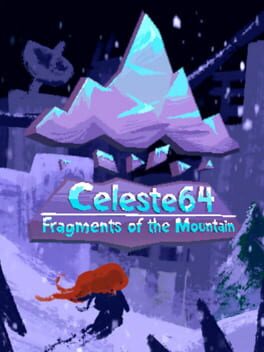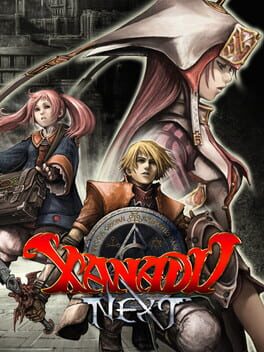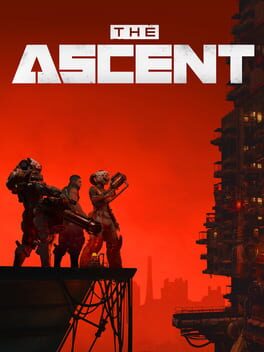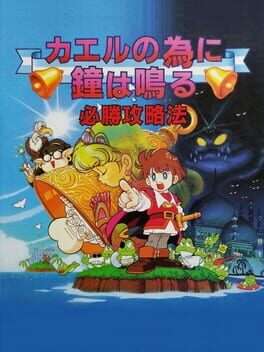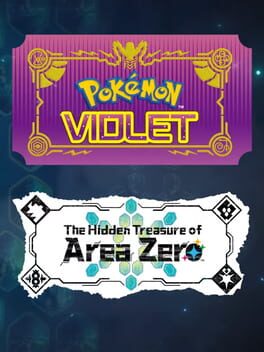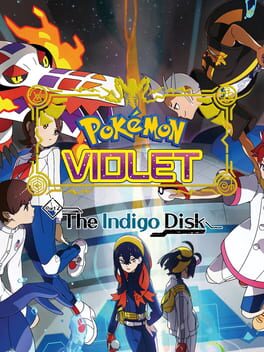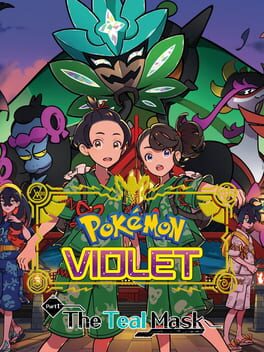2023
This is in contention for the biggest improvement for a sequel ever in my book, and if anything deserved the glow up it was Blasphemous. The first game drew me in with its extraordinarily detailed pixel art representing a world filled with some of the coolest boss designs I could imagine. The problem is that the actual game was pretty much the barest bones metroidvania I've ever played, it just had nothing interesting going on mechanically. I wanted a sequel with some meat on its bones to back up its face, and Blasphemous II is exactly that.
From the first couple hours discovering the altarpiece system, the new platforming options, and the 3 weapons with distinct abilities in and out of combat, I was floored by just how much it was improved in every regard. Plus, they nailed having a satisfying parry, which is pretty much exactly what I'm looking for in a melee action game, so I was hooked from there. Not only are the mechanics greatly improved, but the level design is as well. Every new option in your toolkit is used in traversal, and never in a way that feels perfunctory. Everything works together to put you into that platforming flow state that perfectly compliments the deliberate action of the combat.
Really just an all around great game that stands toe to toe with some of the best in its genre, and is making me want to try out more sequels to games that I didn't fuck with, but had cool ideas. I really just want more iterative sequels like this in general, that build on the foundation laid down in such a perfect way, to make you really appreciate the stuff that was already good even more.
From the first couple hours discovering the altarpiece system, the new platforming options, and the 3 weapons with distinct abilities in and out of combat, I was floored by just how much it was improved in every regard. Plus, they nailed having a satisfying parry, which is pretty much exactly what I'm looking for in a melee action game, so I was hooked from there. Not only are the mechanics greatly improved, but the level design is as well. Every new option in your toolkit is used in traversal, and never in a way that feels perfunctory. Everything works together to put you into that platforming flow state that perfectly compliments the deliberate action of the combat.
Really just an all around great game that stands toe to toe with some of the best in its genre, and is making me want to try out more sequels to games that I didn't fuck with, but had cool ideas. I really just want more iterative sequels like this in general, that build on the foundation laid down in such a perfect way, to make you really appreciate the stuff that was already good even more.
Pretty much the platonic ideal of a licensed anime game. It's got a new story set in the UC timeline which is elevated by knowledge of the source material, it's got a structure that makes it feel in line with an anime (I'm a sucker for the OPs and EDs in games), and it's not an arena fighter. I'm not sure I 100% loved the tone and all the Zeon apologism, but what was here was pretty damn solid.
1996
Totally shocked at how smooth of an experience this was. Usually when I play a PC game from the 90s I just assume I’m gonna have to read a guide to get around a bunch of weird archaic shit, and that is not the case here. I was able to just hit the ground running and feed demon after demon into the wood chipper while vibing with the atmosphere that is completely singular.
I adored Final Fantasy VII Remake despite never hunkering down and playing through the original. Upon going back to Final Fantasy VII I was struck by how aimless it felt for large chunks, just kind of meandering from one weird experiment to another in a bizarre multimedia project mostly held together by the strength of its cast. That's not to say that the original FF7 is bad, it's no doubt a landmark work, but this inconsistent quality that pervades the experience cannot be overlooked.
Final Fantasy VII Rebirth begins as Cloud and friends enter into what is the most scattershot chunk of game from its namesake. In an attempt to capture that scattershot feeling that the original exudes just due to the circumstances of its creation, Rebirth hits on an even stranger balance. Seeing all the little diversions you'd expect of areas like the Gold Saucer with the modern level of polish you'd expect of a AAA video game somehow makes them less interesting. Yes, every minigame in this is technically more fun than they ever were in the original, though it comes at the expense of the novelty those minigames provided at the time. Each and every minigame is more fleshed out than it was previously, while also being featured alongside a bevy of new minigames and an avalance of Ubislop open world content, it's enough to make your head spin. Doubly so if this was the sort of stuff that never worked for you in the original FF7.
All of that is what loomed large in my mind while playing the game, but upon completing it most of that has been swept aside by an ending that left me with more thoughts than anything FF7 related has to date. I'm not going to get into spoilers here, but all of the bloat on display in Rebirth on top of a previous 40 hour outting with this cast, has endeared them to me at a level that few casts of any media have. Even if the story of Rebirth followed the events of FF7 to a tee, the emotional highs and lows would necessarily feel more extreme just due to this endearment. I do think that Rebirth is following the events of FF7 a little too closely at times, but that makes the deviations all the more impactful. That impact is felt strongly for me, I haven't been able to stop thinking about the implications of the last few hours of the game for the last day since I finished it, and even if there wasn't another game on the way to follow up on what I saw here, the metatextual elements alone are enough to chew on for a long time to come.
I love this game! it's messy as hell just like Final Fantasy VII should be, but that also means there are a lot of little gripes getting in the way of me wanting to experience this story again. Which is wild, because with a cast this strong, and combat this satisfying, it almost feels like you'd have to intentionally make huge chunks of the game bad to keep me away from it.
Final Fantasy VII Rebirth begins as Cloud and friends enter into what is the most scattershot chunk of game from its namesake. In an attempt to capture that scattershot feeling that the original exudes just due to the circumstances of its creation, Rebirth hits on an even stranger balance. Seeing all the little diversions you'd expect of areas like the Gold Saucer with the modern level of polish you'd expect of a AAA video game somehow makes them less interesting. Yes, every minigame in this is technically more fun than they ever were in the original, though it comes at the expense of the novelty those minigames provided at the time. Each and every minigame is more fleshed out than it was previously, while also being featured alongside a bevy of new minigames and an avalance of Ubislop open world content, it's enough to make your head spin. Doubly so if this was the sort of stuff that never worked for you in the original FF7.
All of that is what loomed large in my mind while playing the game, but upon completing it most of that has been swept aside by an ending that left me with more thoughts than anything FF7 related has to date. I'm not going to get into spoilers here, but all of the bloat on display in Rebirth on top of a previous 40 hour outting with this cast, has endeared them to me at a level that few casts of any media have. Even if the story of Rebirth followed the events of FF7 to a tee, the emotional highs and lows would necessarily feel more extreme just due to this endearment. I do think that Rebirth is following the events of FF7 a little too closely at times, but that makes the deviations all the more impactful. That impact is felt strongly for me, I haven't been able to stop thinking about the implications of the last few hours of the game for the last day since I finished it, and even if there wasn't another game on the way to follow up on what I saw here, the metatextual elements alone are enough to chew on for a long time to come.
I love this game! it's messy as hell just like Final Fantasy VII should be, but that also means there are a lot of little gripes getting in the way of me wanting to experience this story again. Which is wild, because with a cast this strong, and combat this satisfying, it almost feels like you'd have to intentionally make huge chunks of the game bad to keep me away from it.
Decided to give this one a go in split screen co op after playing it single player a few years back, and man, I ended up liking it a lot less. I think the encounters feel way too overtuned for two human players vs a human and an AI buddy, and it turned huge sections of the game into an absolute slog. The Wesker fights also stuck out as some of the worst bits in any of the games I’ve played in this franchise, they’re just really obtuse and more tedious than anything once you understand what it wants from you. I do still really fuck with the core gameplay, and there’s aspects of the co op that are great - the inventory management, the melee combos, and a lot of little organic moments of saving your partners ass at the last second, but overall I’m feeling a lot more down on it than I had in the past.
I think there's a reason that most 3D platformers are not all about precision platforming, and tend to be more about the exploration and discovery of an interesting 3D space. There are no doubt games that can tow that line and deliver on both, but they're few and far between.
For Celeste's first 3D outting I don't think that line is towed completely successfully, but what was delivered here is admirable nonetheless. Exploring the level on offer here and learning the ins and outs of the movement, which hews closer to the original Celeste than I expected, was delightful through and through. There are a handful of bursts of precision platforming that demand perfection, but with the generous checkpointing and fast respawns that you'd expect, they don't break up the collect-a-thon-esque flow too much. I think the cracks really begin to show in the hidden cassette tape stages where you're presented with a much more demanding platforming challenge backdropped by a black void evocative of Mario Sunshine. I think these sections feel the most like the precision platforming of the original game translated directly to 3D, and it feels a bit incongruous. Having to quickly move the camera as you dart from platform to platform adds an extra element that really does not compliment this style of platforming.
I think despite those handful of sections though this is a really tight, solid little game that I can see myself returning to on a whim just to soak in the vibes and feel the movement a bit, because it is smooth as hell and there aren't many 3D platformers that clear that bar.
For Celeste's first 3D outting I don't think that line is towed completely successfully, but what was delivered here is admirable nonetheless. Exploring the level on offer here and learning the ins and outs of the movement, which hews closer to the original Celeste than I expected, was delightful through and through. There are a handful of bursts of precision platforming that demand perfection, but with the generous checkpointing and fast respawns that you'd expect, they don't break up the collect-a-thon-esque flow too much. I think the cracks really begin to show in the hidden cassette tape stages where you're presented with a much more demanding platforming challenge backdropped by a black void evocative of Mario Sunshine. I think these sections feel the most like the precision platforming of the original game translated directly to 3D, and it feels a bit incongruous. Having to quickly move the camera as you dart from platform to platform adds an extra element that really does not compliment this style of platforming.
I think despite those handful of sections though this is a really tight, solid little game that I can see myself returning to on a whim just to soak in the vibes and feel the movement a bit, because it is smooth as hell and there aren't many 3D platformers that clear that bar.
2024
2005
2024
When I first played Persona 3 FES in 2020 during covid lockdown, it did not hit especially hard for me. In contrast, my time spent with Persona 3 Reload is something I think I’ll hold dear for many years to come. How can such a 1:1 remake of a game, played only a few years apart leave me with such a different takeaway? I’ve played a lot of remakes, and I’m not sure that this has ever quite happened to me before. Sure, there are some remakes that I prefer to the original, but usually they’re those that make such drastic changes that they feel like a completely different game, but Persona 3 Reload is more or less The Same Game as Persona 3 FES. I think this difference in personal reception is due to a mixture of things. Namely, the exact nature of the changes made in Reload, but also how much I’ve changed as a person in the last 4 years.
Every change here is made with exacting precision in order to maintain the more minimalistic approach to the modern Persona formula that is necessitated by the thematic and narrative needs of Persona 3. Nothing feels like a cynical change made just for the sake of smoothing the edges off for Persona 5 fans, and the game never approaches the maximalist cacophony of mechanics and style of P5. Everything seems to have been done to make Persona 3 Reload feel like its more of itself than any of its previous iterations could have been, and I think the changes allowed me to connect with the narrative on a much deeper level, despite it being largely the same as P3FES in that regard. This feels like one of the most thematically complete games in the genre, both in terms of gameplay and narrative, which is something I’ve come to value much more highly over the years since I played FES.
I’ve touched on this in previous reviews, but the last few years have been a time of rapid change for me. Both in terms of my taste in games, but also life at large. When I first played FES I was just starting to dip my toes into the wider world of JRPGs, coming off of my revelatory experiences with Dragon Quest XI S, and Persona 5 Royal, and the glut of free time I had as a result of being in covid lockdown. This was a time before I had explored the world of Shin Megami Tensei proper, or really understood the appeal of endlessly crawling dungeons, but now that I’ve had all those experiences the previously perceived “rough edges” of P3 have faded into the background for me. The endless slog of Tartarus, though improved in some ways in Reload, now feels like a necessary piece of the puzzle of the story being told, rather than something that’s getting in the way of the daily life stuff I was there for before.
On a more real note, 2020 was obviously an extremely depressing time for me, covid lockdown and the loss of a close friend to suicide exacerbated the crushing loneliness I already experienced due to difficulties with anxiety, and the future seemed utterly hopeless. Reading what I just wrote after finishing Persona 3 for the second time has me realizing that, of course I was not ready for what the game was trying to say at that time, because I was in the midst of living through it. In hindsight, and now being at a better place in my life, conquering my anxiety and having much closer relationships with people than I feel that I was capable of before, it’s obvious how powerful the message of this game is. There were many times while playing that I would relate to something a character was going through via an experience I’ve had in the last 4 years. How could I possibly find Junpei unilaterally annoying as I had in the past when I’ve shared in his experiences in the interim? There’s something that makes me feel a little angry that it took until I was almost 27 years old to find a common ground with a game made with a target audience of teenagers in mind. Why have I not been able to relate to these things before, is something wrong with the way I’ve lived my life? But I think that if Persona 3 has anything to teach the player it’s that there isn’t just one right way to live your life, there’s always going to be experiences you miss out on as you march towards the inevitable end. You just have to make the most of the time you have, and connect with others in the most authentic and vulnerable ways that you’re capable of, and I’m working towards that every day.
Every change here is made with exacting precision in order to maintain the more minimalistic approach to the modern Persona formula that is necessitated by the thematic and narrative needs of Persona 3. Nothing feels like a cynical change made just for the sake of smoothing the edges off for Persona 5 fans, and the game never approaches the maximalist cacophony of mechanics and style of P5. Everything seems to have been done to make Persona 3 Reload feel like its more of itself than any of its previous iterations could have been, and I think the changes allowed me to connect with the narrative on a much deeper level, despite it being largely the same as P3FES in that regard. This feels like one of the most thematically complete games in the genre, both in terms of gameplay and narrative, which is something I’ve come to value much more highly over the years since I played FES.
I’ve touched on this in previous reviews, but the last few years have been a time of rapid change for me. Both in terms of my taste in games, but also life at large. When I first played FES I was just starting to dip my toes into the wider world of JRPGs, coming off of my revelatory experiences with Dragon Quest XI S, and Persona 5 Royal, and the glut of free time I had as a result of being in covid lockdown. This was a time before I had explored the world of Shin Megami Tensei proper, or really understood the appeal of endlessly crawling dungeons, but now that I’ve had all those experiences the previously perceived “rough edges” of P3 have faded into the background for me. The endless slog of Tartarus, though improved in some ways in Reload, now feels like a necessary piece of the puzzle of the story being told, rather than something that’s getting in the way of the daily life stuff I was there for before.
On a more real note, 2020 was obviously an extremely depressing time for me, covid lockdown and the loss of a close friend to suicide exacerbated the crushing loneliness I already experienced due to difficulties with anxiety, and the future seemed utterly hopeless. Reading what I just wrote after finishing Persona 3 for the second time has me realizing that, of course I was not ready for what the game was trying to say at that time, because I was in the midst of living through it. In hindsight, and now being at a better place in my life, conquering my anxiety and having much closer relationships with people than I feel that I was capable of before, it’s obvious how powerful the message of this game is. There were many times while playing that I would relate to something a character was going through via an experience I’ve had in the last 4 years. How could I possibly find Junpei unilaterally annoying as I had in the past when I’ve shared in his experiences in the interim? There’s something that makes me feel a little angry that it took until I was almost 27 years old to find a common ground with a game made with a target audience of teenagers in mind. Why have I not been able to relate to these things before, is something wrong with the way I’ve lived my life? But I think that if Persona 3 has anything to teach the player it’s that there isn’t just one right way to live your life, there’s always going to be experiences you miss out on as you march towards the inevitable end. You just have to make the most of the time you have, and connect with others in the most authentic and vulnerable ways that you’re capable of, and I’m working towards that every day.
This might be the best game in the entire franchise, if not for the fact it has maybe the worst story in the entire franchise. It feels to me like they had a basic idea for what they wanted to do with the game on a thematic level, but then had to contort it to fit it into the new setting, and pad it to hell and back in order to make the game work better as a JRPG with all this incredible side content. Yet, even with all that padding there are several characters that aren't fleshed out in a meaningful way, plot threads that don't get followed up on, both from this game and Gaiden (which was written after IW fwiw), and hardly enough of the mindblowing end-of-chapter cliffhangers that the series is known for to keep me engaged throughout the middle of the game.
All that being said, I still did really really enjoy Infinite Wealth. I don't think I've ever had quite as much fun just hanging out with a JRPG party as I did in this game. The addition of the Bond Bingo system, which adds a ton more conversations for you to get to know every character better, on top of the previously established Drink Link and Table Talk systems made for huge chunks of the game where I was able to just walk around the city and get to know my party members in a supremely deep way. The 2 completely new party members they added are the highlight of Ichiban's half of the game for me too, both of them have satisfying arcs and are just people I would want to hang out with tbh. You also get to see new sides of characters from LAD7 which was delightful, even if most of them get kind of sidelined in the main plot.
The side content here is some of the best in the franchise, and I think a lot of that comes from the combat being legitimately incredible now so it feels less tedious. As much as I loved LAD7, and most of the previous games, combat has never been the strong suit for LAD. It's usually serviceable, and fights end quick so it never distracts you for too long, but in 7 the fights did last too long, which lead to me absolutely dreading any sort of encounter pretty quickly. I won't say that the combat in Infinite Wealth really goes any quicker than in the previous game, though due to all the additions they made to the mechanics it's far more engaging than before, which makes me not feel that length at all. I was legitimately seeking out fights, for maybe the first time in the entire series, which is a hell of an accomplishment. Like I said, this makes the already top-tier side content even better, because now when I'm running from place to place for a substory, I actually like getting in a random encounter, and for the bits of side content that are entirely focused on the combat (dungeons, part-time hero) I'm also all-in in a way I've never been. The big side quest for Kiryu, the bucket list, not only reminded me of all the older games in a way that made me want to replay literally all of them, but also had more moments that made me shed a tear than the main story did, by a lot.
In a similar vein to LAD5, I do like this big messy overambitious game a lot, but I hope that this isn't the direction the franchise is going to take overall. At least not at the expense of the more intimate, dense, and tighter games that made me fall in love with Like a Dragon.
All that being said, I still did really really enjoy Infinite Wealth. I don't think I've ever had quite as much fun just hanging out with a JRPG party as I did in this game. The addition of the Bond Bingo system, which adds a ton more conversations for you to get to know every character better, on top of the previously established Drink Link and Table Talk systems made for huge chunks of the game where I was able to just walk around the city and get to know my party members in a supremely deep way. The 2 completely new party members they added are the highlight of Ichiban's half of the game for me too, both of them have satisfying arcs and are just people I would want to hang out with tbh. You also get to see new sides of characters from LAD7 which was delightful, even if most of them get kind of sidelined in the main plot.
The side content here is some of the best in the franchise, and I think a lot of that comes from the combat being legitimately incredible now so it feels less tedious. As much as I loved LAD7, and most of the previous games, combat has never been the strong suit for LAD. It's usually serviceable, and fights end quick so it never distracts you for too long, but in 7 the fights did last too long, which lead to me absolutely dreading any sort of encounter pretty quickly. I won't say that the combat in Infinite Wealth really goes any quicker than in the previous game, though due to all the additions they made to the mechanics it's far more engaging than before, which makes me not feel that length at all. I was legitimately seeking out fights, for maybe the first time in the entire series, which is a hell of an accomplishment. Like I said, this makes the already top-tier side content even better, because now when I'm running from place to place for a substory, I actually like getting in a random encounter, and for the bits of side content that are entirely focused on the combat (dungeons, part-time hero) I'm also all-in in a way I've never been. The big side quest for Kiryu, the bucket list, not only reminded me of all the older games in a way that made me want to replay literally all of them, but also had more moments that made me shed a tear than the main story did, by a lot.
In a similar vein to LAD5, I do like this big messy overambitious game a lot, but I hope that this isn't the direction the franchise is going to take overall. At least not at the expense of the more intimate, dense, and tighter games that made me fall in love with Like a Dragon.
2021
I love the look of this game so much. This is the exact type of gritty disgusting vile cyberpunk that I love to gawk at while my face is bathed in an unholy red light. It has shades of all the popular cyberpunk fiction, but also Tsutomu Nihei’s Blame! which is one of my favorite manga period. There’s echoes in here of a lot of the aesthetic trappings that really captivated me with Signalis, but just done in a more contemporary style with Bigger Money.
That’s kind of where my adoration for The Ascent begins and ends though. I don’t usually ding games for technical issues, because modern video games are so complex that it’s a miracle that any of them ever come out completely bereft of this sort of thing. That being said, this game, which is an ostensibly co-op shooter, has completely broken co-op. In the 6 or 7 hours I played with a friend we had the game crash one of our systems, freeze up completely about every 30 minutes, and make us unable to shoot our weapons in combat several times over. All in all it felt like I was spending more time rebooting the game than actually playing it. Apparently most of these issues are not present at all in the single player, but the entire appeal to me is the co-op element so this just stopped me dead in my tracks.
It would be one thing if the gameplay was absolutely stellar, maybe I’d suffer through these issues or just play by myself, but it’s a pretty bog standard action-rpg. There’s a mechanic for raising and lowering your weapon, which is neat in an isometric space, but in my time with the game I found very little reason to actually utilize that. There’s also surprisingly little interesting loot for a game of this type, the friend I was playing with and I just ended up on almost the exact same build because it didn’t ever seem worth branching out. Just nothing really fired any neurons for me, it’s the type of thing that’s frictionless enough I would probably just see it through to the end and forget about entirely if I had been allowed that luxury.
That’s kind of where my adoration for The Ascent begins and ends though. I don’t usually ding games for technical issues, because modern video games are so complex that it’s a miracle that any of them ever come out completely bereft of this sort of thing. That being said, this game, which is an ostensibly co-op shooter, has completely broken co-op. In the 6 or 7 hours I played with a friend we had the game crash one of our systems, freeze up completely about every 30 minutes, and make us unable to shoot our weapons in combat several times over. All in all it felt like I was spending more time rebooting the game than actually playing it. Apparently most of these issues are not present at all in the single player, but the entire appeal to me is the co-op element so this just stopped me dead in my tracks.
It would be one thing if the gameplay was absolutely stellar, maybe I’d suffer through these issues or just play by myself, but it’s a pretty bog standard action-rpg. There’s a mechanic for raising and lowering your weapon, which is neat in an isometric space, but in my time with the game I found very little reason to actually utilize that. There’s also surprisingly little interesting loot for a game of this type, the friend I was playing with and I just ended up on almost the exact same build because it didn’t ever seem worth branching out. Just nothing really fired any neurons for me, it’s the type of thing that’s frictionless enough I would probably just see it through to the end and forget about entirely if I had been allowed that luxury.
Link's Awakening has long been one of my favorite Zelda games, and the uncontested peak of the Gameboy's library. For the Frog the Bell Tolls is its direct predecessor, both in the tech used and in much of the tone and personality that lies at the core appeal of both games. Threaded throughout this game you can feel the bones of the trading quest in Link's Awakening especially strongly, which is one of the best bits that game has to offer. The princely protagonist here is on a wild goose chase being strung along from favor to favor in order to get back his squandered wealth and save the day.
All the major characters have really strong personalities and go through their own little arcs in ways that I just would not expect from a game of this age on the platform its on. From your spoiled rich kid protagonist, to the thief that plunders that wealth, everyone gets a little more care put into them than you might expect. Punching above its weight is something this game does consistently, from the writing to the game design at its core. For a puzzle-heavy adventure game like this to have such smooth progression is miraculous. I only felt stumped in a couple of instances where I didn't exhaust everyone's dialogue, and I was consistently impressed by the creativity behind the solutions to the myriad of puzzles even with such a limited arsenal at your disposal. In particular, the culmination of your quest for gold had me damn near clapping at the screen when I figured out what I was supposed to do. This is all without even mentioning the way that the overworld and the dungeons seemlessly work together to utilize your toolset in unique ways.
Really the only thing dragging down For the Frog the Bell Tolls for me is that sometimes the overly punitive action gets in the way of the joy of puzzle solving. There are just times where you miss a platform and fall into an instant death pit, or you accidentally run into an enemy you have no hope of defeating and the escape command fails 5 times in a row with no recourse. It just feels really frustrating to get sent back to town, having to redo an entire dungeon just because of one little mistake, in a game where the emphasis is not at all on the action. I do appreciate how the combat system is handled more broadly, it's used more to gate you out of areas you're not supposed to be in yet and funnel you in the right direction which is neat, but in dungeons it can be a bit too much.
Overall this is a really really charming game, and without a doubt one of the best in the Gameboy library. It's always a treat to see the lineage behind games you love too, I feel like this experience only enriches my love of Link's Awakening even more.
All the major characters have really strong personalities and go through their own little arcs in ways that I just would not expect from a game of this age on the platform its on. From your spoiled rich kid protagonist, to the thief that plunders that wealth, everyone gets a little more care put into them than you might expect. Punching above its weight is something this game does consistently, from the writing to the game design at its core. For a puzzle-heavy adventure game like this to have such smooth progression is miraculous. I only felt stumped in a couple of instances where I didn't exhaust everyone's dialogue, and I was consistently impressed by the creativity behind the solutions to the myriad of puzzles even with such a limited arsenal at your disposal. In particular, the culmination of your quest for gold had me damn near clapping at the screen when I figured out what I was supposed to do. This is all without even mentioning the way that the overworld and the dungeons seemlessly work together to utilize your toolset in unique ways.
Really the only thing dragging down For the Frog the Bell Tolls for me is that sometimes the overly punitive action gets in the way of the joy of puzzle solving. There are just times where you miss a platform and fall into an instant death pit, or you accidentally run into an enemy you have no hope of defeating and the escape command fails 5 times in a row with no recourse. It just feels really frustrating to get sent back to town, having to redo an entire dungeon just because of one little mistake, in a game where the emphasis is not at all on the action. I do appreciate how the combat system is handled more broadly, it's used more to gate you out of areas you're not supposed to be in yet and funnel you in the right direction which is neat, but in dungeons it can be a bit too much.
Overall this is a really really charming game, and without a doubt one of the best in the Gameboy library. It's always a treat to see the lineage behind games you love too, I feel like this experience only enriches my love of Link's Awakening even more.
I reviewed the two DLCs separately, but I just wanted to touch on the epilogue here since that doesn't have its own Backloggd page. I loved the epilogue. It's the exact kind of story I'd love to see more of in Pokemon going forward. It's a silly little episodic adventure, centering around a Pokemon's particular abilities, where you and your friends get swept up and have to figure out a solution. It builds on the friendships you forged with the cast throughout the base game and the DLCs, and lets you see where all these characters are after their arcs are concluded. There's absolutely nothing like this in the entire franchise, and whereas I don't think it's anything super spectacular in a vacuum, it's super spectacular by Pokemon standards specifically, and it's got me feeling better about this series than I have in a long time.
The Indigo Disk once again impressed me with an interesting take on a small open world. A giant terrarium split cleanly into four slices, each a different biome with wildly different terrain, leading to a ton of variety packed into a pretty small area, which is also dotted with tunnel systems that are complex enough that I don't think I came close to seeing all of it. All the callbacks to the Unova and Alola games through locales, characters, and music were all very appreciated as someone who is a huge mark for those regions. The focus on double battles here is fantastic, it takes the high-level postgame balance I loved about the previous DLC and pumps it up even higher, leading to even more encounters where I almost didn't make it out alive despite my playthrough-mons being near max level at this point. Story wise I definitely do think this one is a bit worse than its predecessor, it just feels much less focused and I'm not positive that I like what they did with Kieran's arc. I will say that I did really enjoy the ending, there's a couple of great subversions of series-wide tropes, and a phenomenal boss fight to cap it all off.
It’s interesting to see Gamefreak’s ability at crafting little open worlds evolve so quickly as they rapidly iterate and release new content so quickly. This is one of the best of these worlds yet, designed as a wheel with a tall, dense mountain in the middle and several biomes as the spokes, each with containing one of the “Six Wonders of Kitakami” which hilariously range from a circle of rocks to an unremarkable pond. The Kitakami region also contains elements pulling from the aesthetics of the Japanese inaka, reminiscent of aspects of Hisui and Johto in quite a few ways that I found delightful as a fan of those regions specifically.
The fact this is meant to be played in the post game, where players have Pokémon in the level 50+ range leads to a flattened level curve which allows you to go anywhere in the world and have a roughly equivalent experience, with a handful of trainer battles and actually putting me on the back foot and making me use items to stay alive, even in instances where my party outleveled the opponents by quite a bit.
The story also impresses by Pokémon standards, drawing parallels from the ancient regional myth of Ogrepon and the contemporary problems of the loner adolescent Kieran. It’s not deep by any means but it navigates its themes in a way that I just don’t expect from this series anymore. I think it fumbles the bag a little bit at the end, with a scene featuring Kieran that made me lose it laughing, and a cliffhanger for the second DLC that makes this end on an abrupt note.
The fact this is meant to be played in the post game, where players have Pokémon in the level 50+ range leads to a flattened level curve which allows you to go anywhere in the world and have a roughly equivalent experience, with a handful of trainer battles and actually putting me on the back foot and making me use items to stay alive, even in instances where my party outleveled the opponents by quite a bit.
The story also impresses by Pokémon standards, drawing parallels from the ancient regional myth of Ogrepon and the contemporary problems of the loner adolescent Kieran. It’s not deep by any means but it navigates its themes in a way that I just don’t expect from this series anymore. I think it fumbles the bag a little bit at the end, with a scene featuring Kieran that made me lose it laughing, and a cliffhanger for the second DLC that makes this end on an abrupt note.
